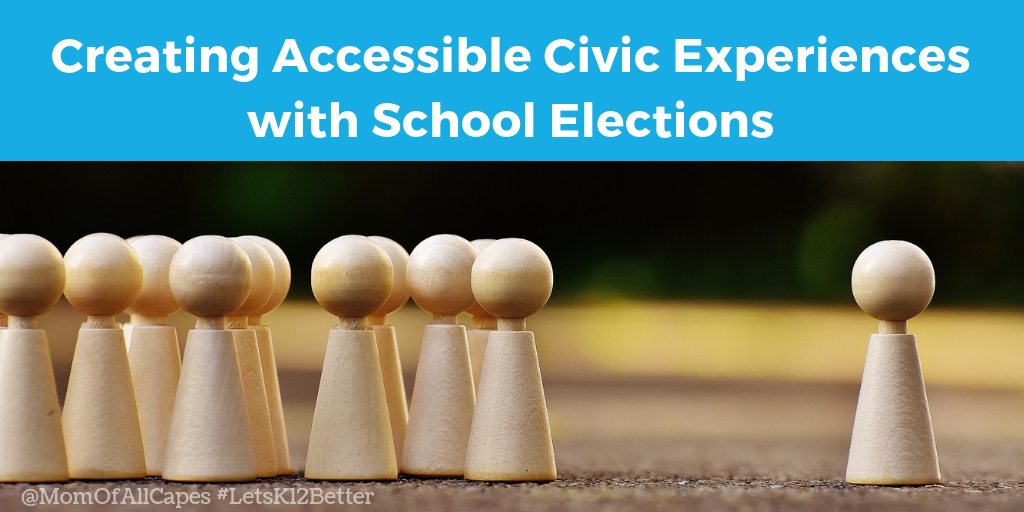|
Recently, my daughter ran for student body president. Her challenge was to convince over 800 kids that she should be their champion and leader in the student government. Although she ran a really impressive, thoughtful, and mature campaign, she lost to an opponent that she didn’t even anticipate having a chance. She learned valuable lessons about having a gimmick, ignoring the exit polls, and never counting anyone out. But besides that, she learned a valuable lesson about how citizens go through the process to access power to make change. She learned how to run for office. At her school, any student in the higher grade that is interested in running for school government office must fulfill a number of requirements:
School-wide elections are often cast as glorified popularity contests, which in some environments they unfortunately are. For my daughter, running for school president became a great exercise in civic engagement from the vantage point of community leadership. When someone cares about making change or solving civic problems, there are avenues for them to legally make improvements in their community. Running for office is one of the most overlooked avenues by regular people and that is troubling. In her Chicago Tribune Op-Ed, Dilara Sayeed stated that money, lack of trust, and apathy were the reason good people do not run for office. Sayeed, an entrepreneur, a muslim woman, and former teacher, came in second in a four-person Democratic race for state representative of the 5th District in the March 20 Illinois primary but believed her run for office shed light on why more people aren’t taking a chance at politics. Though her points are very accurate, I’d add “access” as one more reason good people don’t run for political office. We work really hard to educate people on becoming an informed voter, but we do not see this much intensity and focus on teaching people how to get elected and how to exercise integrity and service leadership once elected. This is why Alexandria Ocasio-Cortez’s Instagram story which took her followers behind the scenes of orientation and life on the Hill was considered an innovative civic act. No one really knows what our lawmakers actually do, how they come into power, and how they use that power to enact change. We have vague ideas, but unless you’re willing to sit through the yawnfest that is CSPAN-3 or you sit in on the House or the Senate when you visit Washington, DC, you have no real clue what happens in the day-to-day lives of our public servants. Which goes back to my original point, first person experiences like mock elections, running for school office, and even games or simulations are great ways to teach kids how to access and use power within a political structure. With civics we must remove the passive learning strategies of reading text and replace it with active learning experiences. Kids need a variety of hands-on civic experiences that encourage real world transfer through first person perspective. These experiences can come through a variety of formal and informal avenues obtained at home or at school. Class or school elections and student government are great examples of civic experiences that teach kids about the process in a memorable way. Elections are give and take. We want more informed voters but we also need caring, compassionate problem solvers as leaders - those willing to serve their voters and exercise integrity. Learning the process to obtain political power is a civic skill that can be cultivated. The more we allow kids to participate in the political process the closer the process becomes for them. The more the process makes sense, the higher likelihood that there will be real world transfer when it counts. We want future leaders who are passionate to serve their community over self interests, why not start with the next generation and begin cultivating that possibility in them! Read More:
Play iCivics games
0 Comments
Your comment will be posted after it is approved.
Leave a Reply. |
I'm a former teacher and former college athlete, currently working to make life more equitable for all people. My mission is to get parents to partner with their child's teacher.
|

